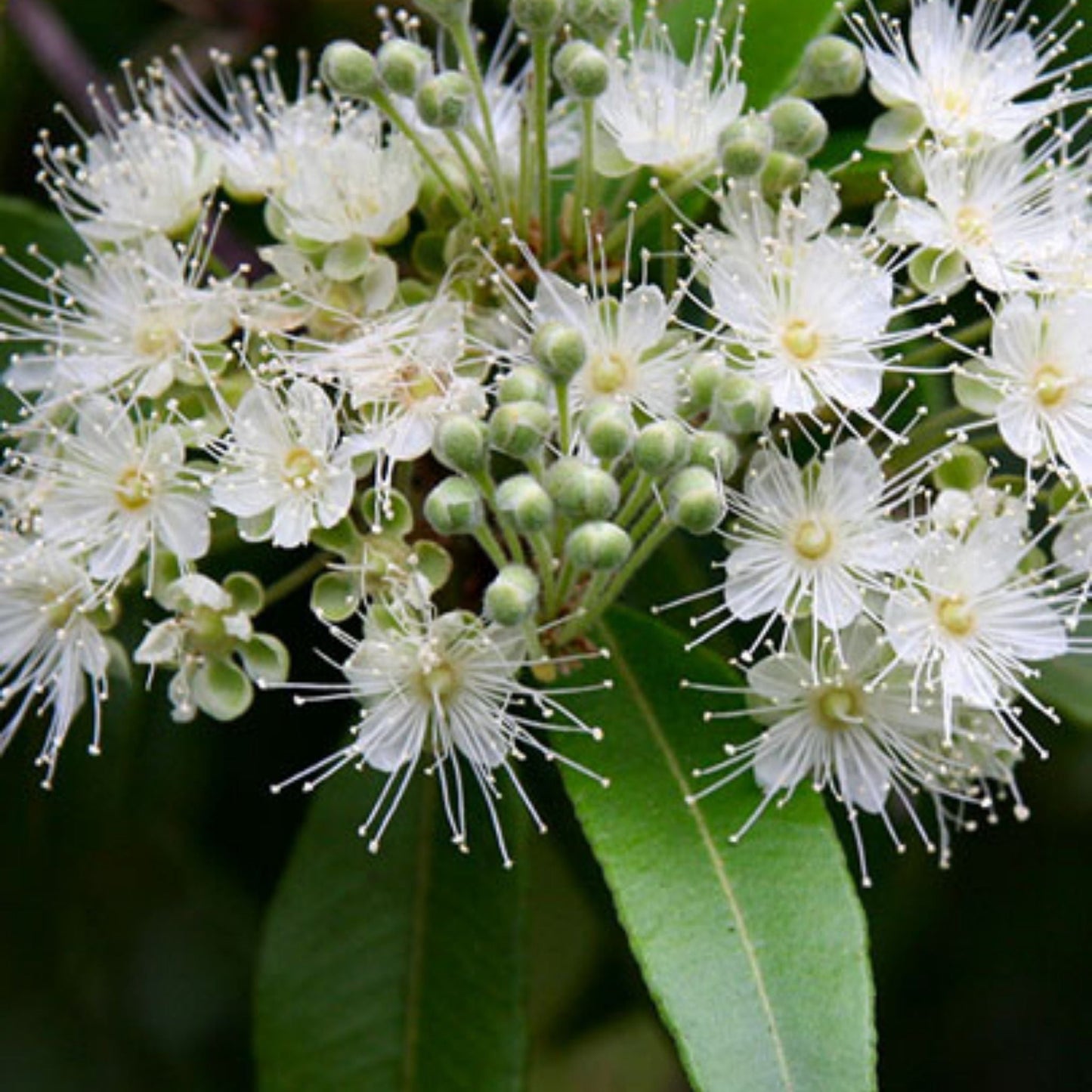Aniseed Myrtle Essential Oil
Aniseed Myrtle Essential Oil
Syzygium anisatum
Common Uses
Common Uses
The scent of this oil can be described as similar to other aniseed oils, but fresher with liqourice tones. It is useful in washing products to eradicate or mask bad smells.
Great in air freshening products as it masks odors, and in oil burners and vaporizers for its fresh fragrance and antibacterial and expectorant qualities. Used in personal care products including skin care, anti aging creams, soaps and bath products, and loved in aromatherapy. A relatively new oil, as it gains in popularity its uses will increase with its fresh fragrance and range of useful properties.
Studied Properties
Studied Properties
Typical Constitution of Anise Myrtle Essential Oil (Aniseed Myrtle Essential Oil)
alpha-phellandrane 0.8%
1,8-cineole 2.0%
estragole (methyl chavicol) 9.2%
z-anethole (cis-) 0.3%
e-anethole (trans) 87.4%
Optical Rotation@ 20C: +3.5 – +12.0
Relative Density@ 20C: 0.895-0.915
Refractive index @ 20C: 1. 488-1.49
A rainforest tree growing to 40 metres, Aniseed (also known as Anise) Myrtle is very rare in the wild, limited to Bellinger and Nambucca Valleys of New South Wales. Anise Myrtle is grown in plantations around northern New South Wales. These plantations were actually planted for the herb or bush tucker markets until the ‘rediscovery’ of its unique essential oil.
The trees are harvested and are then steam distilled for around 1 hour. The harvesting is done by unique farm machinery designed by the farmers themselves. Leaves are cut, a vacuum sucks the leaves into a bin and the leaves are placed into a stainless steel boiler. Anise Myrtle is a new oil to the aromatherapy industry and has the potential to supersede traditional Aniseed essential oils on the basis of a superior Anethole content and a superior, fresher Anise aroma. Anise Myrtle essential oil is extracted via steam distillation of the stems and branches.

More about Aniseed Myrtle Essential Oil
-
Studied Properties
- Calming
- Soothing
- Expectorant
- Antiseptic
- Antibacterial
- Antifungal
-
Common Uses
- Fragrance
- Bath
- Aromatherapy
- Skin Care
- Anti-Aging
-
Featured Constituents
- α-phellandrene
- 1,8 cineole
While care is taken in good faith to ensure the information offered here is reliable and correct, Naturally Australian Products Inc cannot guarantee the accuracy of information and recommends that each ingredient be further researched with respect to its use.

